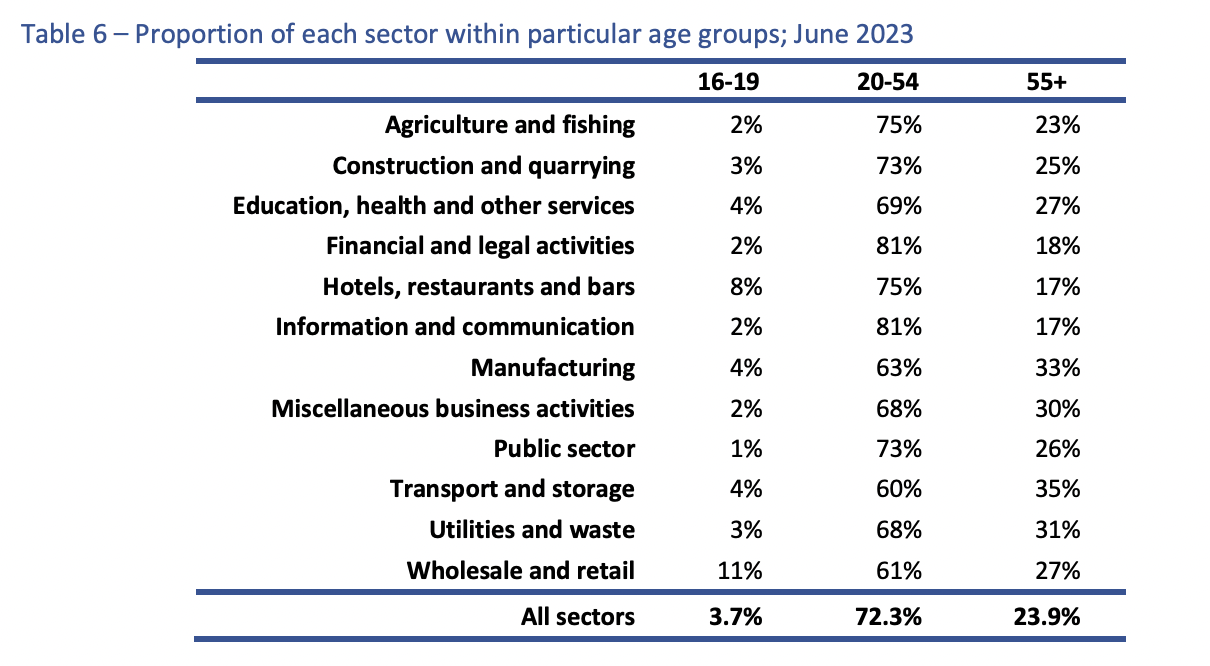


Rising numbers of older islanders are being forced to work "well past" their retirement due to state pensions being "insufficient", according to a local charity.
The comments from Age Concern Chair Ben Shenton came after a new report by Statistics Jersey this week underlined the plight of older islanders, with figures showing how over-55s are now making up more of the workforce than before.
The state pension is a benefit paid when you reach a certain age, with eligibility based on Social Security contributions.
To receive a full pension, which is currently £271.81 per week, individuals must have paid or been credited with contributions that vary based on age.
The pension age is currently 65, for those born before 1955. Women who registered before 1 January 1975 can claim a pension at 60, while others may claim between ages 63 and 67.
While the UK has observed a rise in early retirement since the pandemic, a report published by Statistics Jersey earlier this week suggested a different picture in Jersey.
Speaking to Express, Mr Shenton linked the trend of people working longer to inadequate pensions.
"When it comes to retirement Jersey operates a two-tier, us and them, structure," he said.
"The standard state pension is insufficient to provide a satisfactory retirement, and an additional source of income is necessary to provide a comfortable lifestyle.
"For those in the Public Sector, where pensions can exceed £100,000 per annum, and the finance sector, this is often no problem given their employer funded pension schemes."

Pictured: Ben Shenton, Chair of Age Concern Jersey.
However, Mr Shenton added that "vital employees" who earn marginally above minimum or living wages are facing financial strain due to Jersey's steep cost of living, and find themselves compelled to work "well past" their intended retirement age.
He said this disproportionately impacts those of Eastern European and Southern European backgrounds.
The former Senator added: "Those in the transportation and some other industries tend to be of an age before everyone got a degree, and they are happy to work longer to supplement their income.
"Furthermore the aging of the baby boomers will increase the proportion in this category until it peaks and drops as the boomers retire.
"Ironically while many are working well into their later years, many of those that have retired with fat pensions complain that their income is so high their tax bills are enormous.
"How those forced to work 40-hour weeks on poor pay, in their 70s, must feel about their plight, goodness knows.
"While many are re-entering the workplace, many are not and will not despite any incentives.
"The administration burden of working, especially for small businesses and the self-employed, makes returning to work as appealing as extreme sunburn.
"The implications of this is we will need to embrace technology more and continue to get used to the gradual decline in service levels that we have witnessed for many years."
This week, Statistics Jersey released a report on employment across the island using new, "experimental" methodology combining ITIS, Social Security and manpower return data from businesses to build a picture of the current workforce.
The report said there had been a rise from 20.5% to 24% in the proportion of over-55s in employment from 2019 to 2023.

Pictured: Proportion of each sector within particular age groups. (June 2023)
The transport, storage and manufacturing sectors had a significantly higher proportion of over-55s – which was 35% of the total sector employment according to the report.
For those aged over 60 across the workforce, there was a considerably higher number of males in employment (3,970) than females (1,610) in this age group.
Meanwhile, UK reports have indicated that many older adults left the workforce during the COVID-19 pandemic due to mass redundancies, health risks, and heightened long-term sickness among working-age adults who took early retirement, as reported by economic thinktank The Institute for Fiscal Studies.
To read the Statistics Jersey report in full, click HERE.
Charity calls for better support for pensioners battling poverty
FOCUS: Which islanders are most likely to juggle multiple jobs?
Comments
Comments on this story express the views of the commentator only, not Bailiwick Publishing. We are unable to guarantee the accuracy of any of those comments.